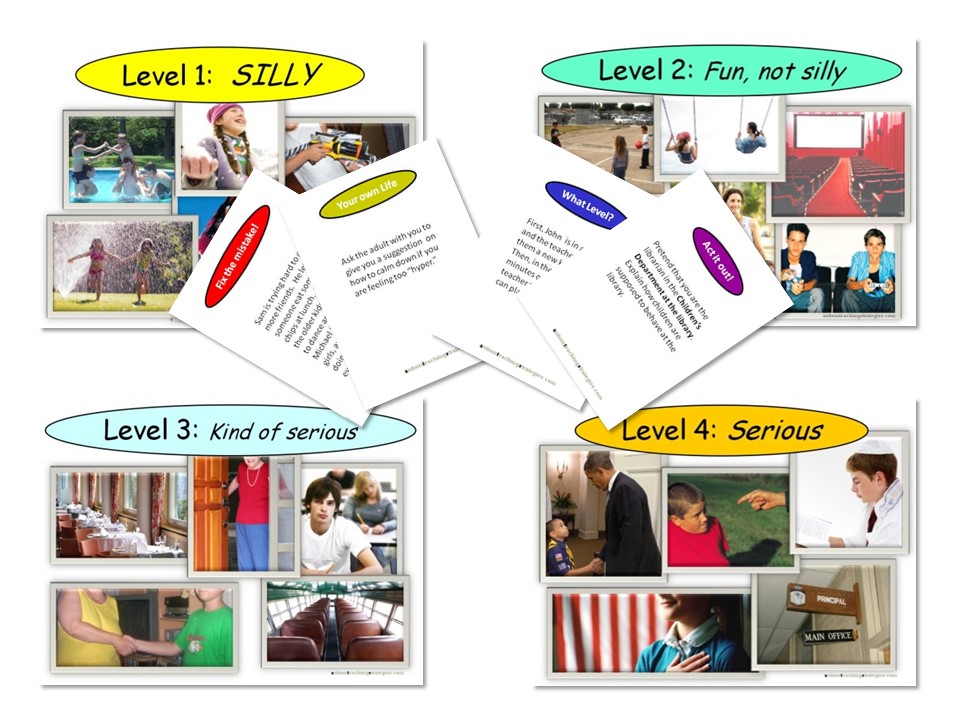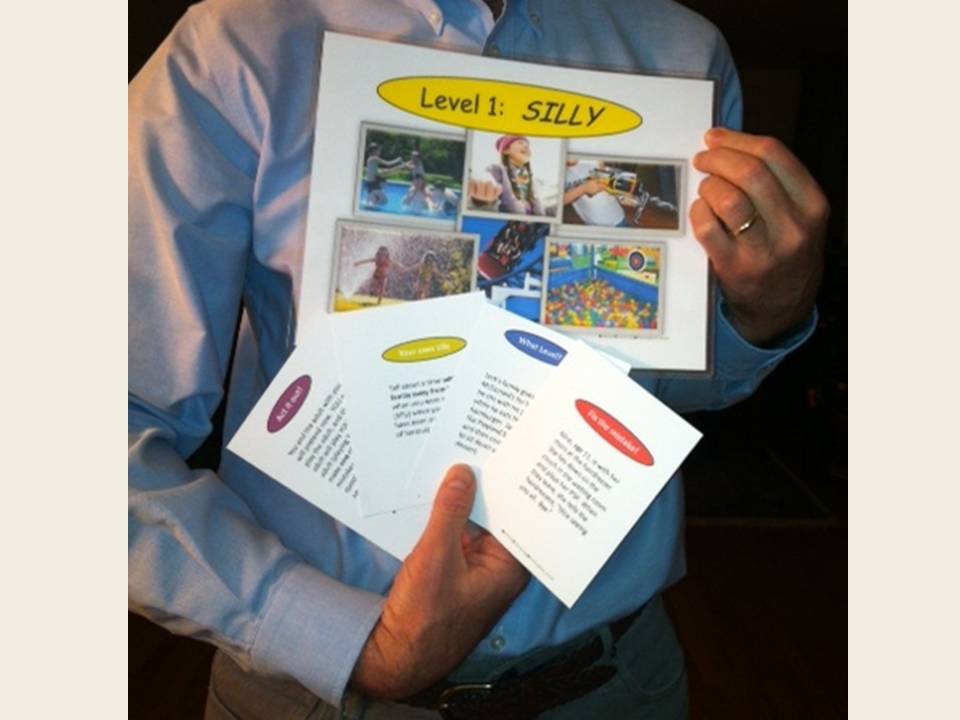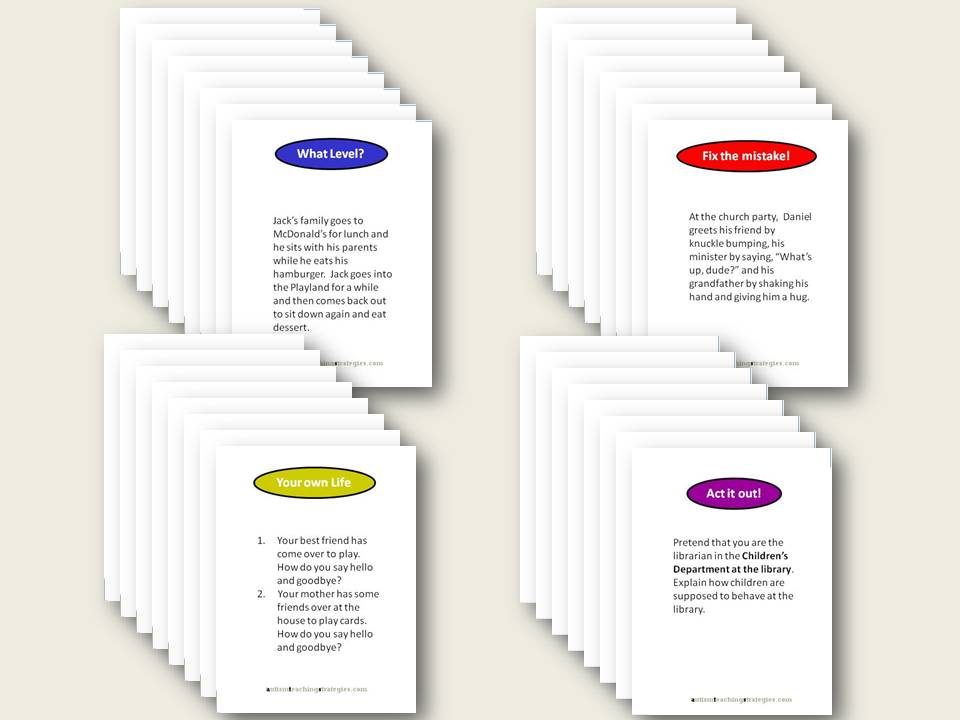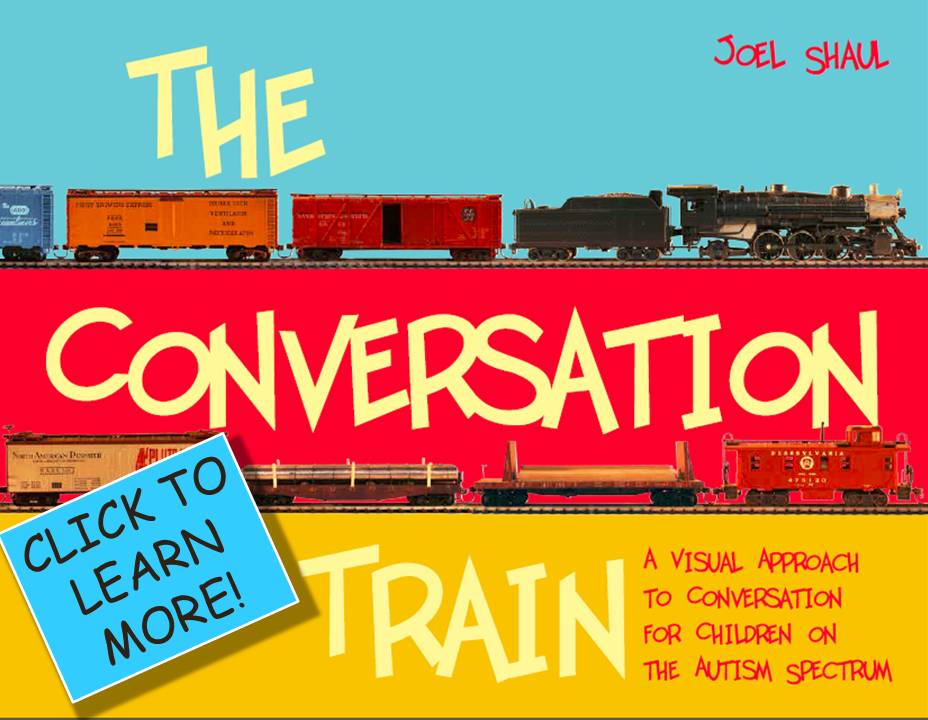 A free downloadable kit to help children with ASD to increase awareness of different levels of formality
A free downloadable kit to help children with ASD to increase awareness of different levels of formality
Silly to Serious Explanation and Panels
Silly to Serious cards only
Silly to Serious Set, PowerPoint Version
This is also available in Polish
Young people with other autism spectrum disorders often struggle to understand what I call “levels of formality” in social situations. In a milieu where a serious bearing might be indicated for a child, a young person on the autism spectrum might behave and speak in a casual and informal manner. For some kids with ASD, the opposite can occur also, and they can at times act too proper around peers where more laid back words and actions would be more appropriate.
There are several reasons why children on the autism spectrum find this set of social skills hard to grasp. First, they tend to not easily understand the subtleties of social hierarchies and how they themselves rank within them. Second, a child with ASD often tends to have difficulty making quick shifts in attention, so if such a child is transitioned suddenly from, say, playing Wii to meeting Mom’s boss who has just stopped by the house, the child might find it extremely difficult to alter his behavior and words quickly enough. Third, many kids with autism have difficulty regulating extremes of emotion. Exerting control over feelings of excitement can be hard for them.
To help children with ASD to learn this social skill, I find it very helpful to divide levels of formality into four different levels. They are basically defined in the visual above. Then, you can help the child by saying, “We’re going into Chucky Cheese. You can be level 1 in there.” Or, at a big family get-together, you can help the child by saying, “In the backyard pool, that’s a level one. When we go inside to see great-grandpa, who is sick, that is a level 3.”
What is included in the Silly to Serious Card Activity:
1. A set of eight 8 1/2 by 11 illustrated panels

2. A set of 32 question cards you use in a game-like format to increase awareness of levels of formality in diverse social situations.
How to introduce the activity:
“People can’t be serious all the time when they are around other people. People can’t be silly all the time either. They have to be the right amount of serious or silly, depending on who they are with and what is happening.”
Now, show the Level Cards to the kids and help them to understand the varieties of social situations within each of the levels. Practice greetings and goodbyes within each of the levels. As you get into this, you may easily find you have enough to do for one or two classes or sessions without even getting to the card activity.
“We are going to play the Silly to Serious game. There are four different kinds of cards in this deck, and when you draw a card you have to do what the card says.
If you draw a “What Level” card, you have to figure out which of the four levels the person in the card is going through.
If you draw a “Fix the Mistake” card, you have to find out how the person in the card is either too serious or too silly and then fix their problem.
If you draw a “Your Own Life” card, you have to answer the question about about YOU.
If you draw an “Act it Out” the card, you have to act out what the card tells you to act out.”
I hope this social skills activity is helpful for you.
Joel Shaul, LCSW
Your comments on these resources are most welcome, and often helpful. Click HERE to send an email.




